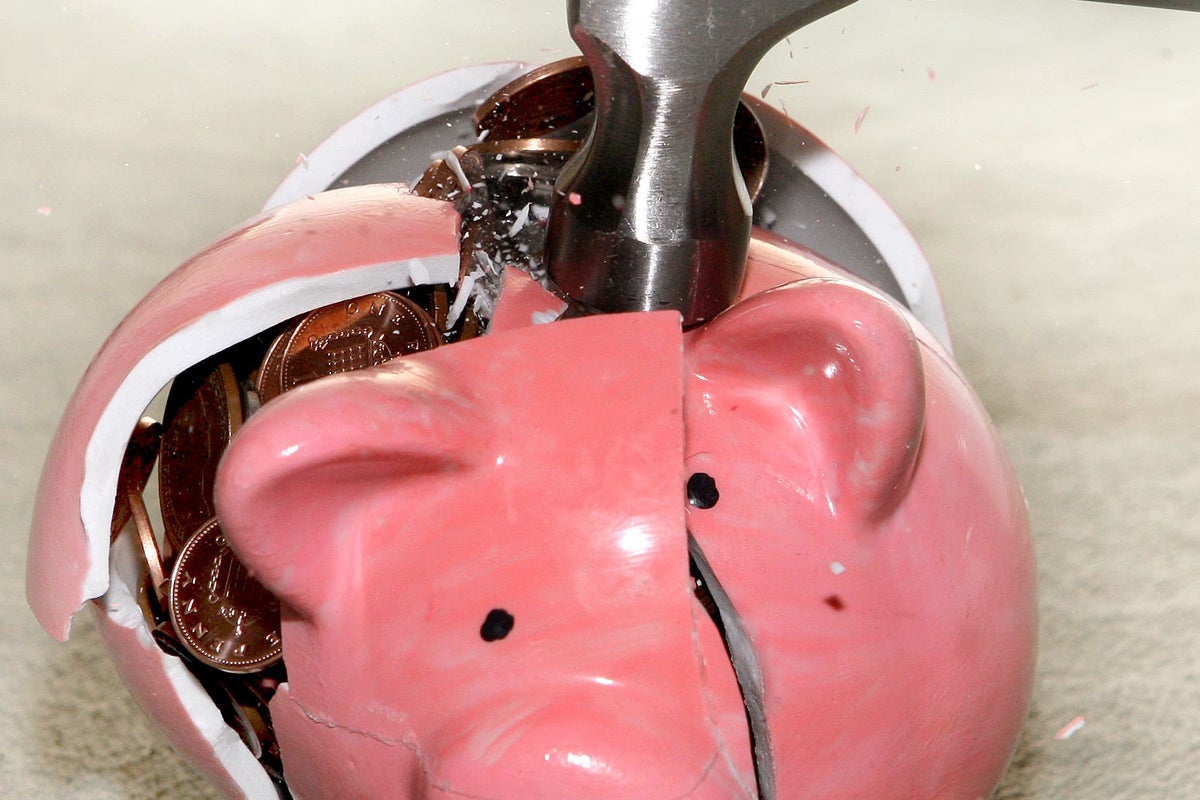
The number of people taking “breathing space” from their financial problems has jumped by more than a third annually, according to figures from the Insolvency Service.
There were 23,179 breathing space registrations in the first three months of 2023, which was 34% higher than in the first quarter of 2022.
Within the total, 22,770 were standard breathing space registrations and 409 were mental health breathing space registrations.
Breathing space schemes give legal protections for people with problem debt.
The scheme protects people from their creditors for 60 days, with most interest and penalty charges frozen and enforcement action halted.
Because problem debt can be linked to mental health issues, these protections are also available for people in mental health crisis treatment, for the full duration of their treatment plus another 30 days.
Across last year, 70,546 registered breathing spaces were recorded, including 69,334 standard and 1,212 mental health breathing space registrations.
People registering for breathing space may or may not end up entering a formal insolvency procedure.
The Insolvency Service’s figures, covering England and Wales, also showed that number of people going financially insolvent across England and Wales was 2% lower in the first quarter of this year than in the final quarter of 2022.
The latest total was also 9% lower than the same quarter the previous year.
Some 29,017 personal insolvencies registered in the first quarter of this year.
Personal insolvencies are made up of individual voluntary arrangements (IVAs), which are agreements whereby money is shared out between creditors; bankruptcies; and debt relief orders (DROs) which are aimed at people with lower amounts of debt which they cannot realistically pay off.
IVAs made up 70% of cases in the first quarter of this year, with DROs accounting for 24% and bankruptcies making up the remaining 6%.
IVAs make up a bigger proportion of personal insolvencies than in the past and bankruptcies a much smaller proportion, the Insolvency Service said.
Five years ago, in the first quarter of 2018, IVAs made up 61% of cases and bankruptcies made up 15%, with DROs making up 24%.
Ten years ago, less than half (48%) of personal insolvencies were IVAs.
The Insolvency Service also released company insolvency figures for England and Wales, showing that the number of firms going insolvent was 18% higher than in the first quarter of 2022 but 4% lower than the final three months of 2022.
There were 5,747 company insolvencies in total registered in the first quarter of 2023.
The number of creditors’ voluntary liquidations (CVLs) remained close to the highest quarterly level on record, the Service said.
The past year (from the second quarter of 2022 to the first quarter of 2023) has seen the highest number of CVLs in the records going back to 1960.
The number of compulsory liquidations also increased, but remained slightly lower than levels seen before the coronavirus pandemic, the Service said.
Numbers of compulsory liquidations and administrations have also increased from historically low levels seen in 2021 to being close to pre-pandemic levels.
From the start of the pandemic until mid-2021, company insolvency levels had generally been low, when compared with pre-pandemic levels.
This is likely to have been driven in part by Government fiscal and other measures that were put in place to support businesses and individuals during the pandemic, the report said.
We urge anyone who is worried about their finances to seek advice as soon as possible— Nicky Fisher, R3
Nicky Fisher, president of insolvency and restructuring trade body R3, said: “Firms are operating in a world of rising costs and falling margins as consumers cut spending right back to the basics – and even then looking to save money wherever they can.
“In this climate, directors need to be vigilant and seek advice at the first sign of issues with their business, or the second they start to worry about it or its finances…
“Money worries are front of mind for many at the moment, as the price of energy and food, and the current and future health of the economy continue to cause concern.
“We’ve also seen household borrowing increase and an increase in people turn to credit to pay their bills. It’s understandable that people are choosing to go down this route but it isn’t a sustainable one.
“We urge anyone who is worried about their finances to seek advice as soon as possible.”
Marcus Wright, managing director of Bolton Business Finance, said: “Sadly we are seeing an increase in businesses with large amounts of short-term borrowing that have simply run out of road.
“Energy bills in particular are hitting businesses seriously hard in some sectors like restaurants and hospitality.”







